In a UIViewController (rolePageController) I configure another UIViewController (drawerController) and pass it 2 UIViews from the role page that will be part of the drawerController's configuration. As soon as the drawerController tries to access the IBOutlet views from the rolePageController, it crashes with EXC_BAD_ACCESS (code=EXC_I386_GPFLT).
In the 1st VC (rolePageController), here are the IBOutlets:
@IBOutlet var rolePageDrawerView: UIView!
@IBOutlet var rolePageContentView: UIView!
In rolePageController.viewDidLoad() I make a call to the drawerController.configureDrawer(...):
override func viewDidLoad() {
super.viewDidLoad()
//other stuff happens here
let drawerController = UIStoryboard(name: "StoryboardName", bundle: nil).instantiateViewController(withIdentifier: "drawerController") as! DrawerViewController
drawerController.configureDrawer(drawerContainerView: self.rolePageDrawerView, overlaidView: self.rolePageContentView)
//other stuff here
}
The DrawerViewController protocol is defined as:
protocol DrawerViewController where Self: UIViewController {
func configureDrawer(drawerContainerView: UIView, overlaidView: UIView)
}
Here is the code for the configureDrawer(...) func:
private var drawerParentView: UIView!
private var overlaidByDrawerView: UIView!
func configureDrawer(drawerContainerView: UIView, overlaidView: UIView) {
self.drawerParentView = drawerContainerView
self.overlaidByDrawerView = overlaidView
}
Noticed in the debugger that the drawerController instance that is called does not match the self instance that receives the call. Here is the address of the instance that will be called:
Here is the address of the instance when I step into the call:
The address of drawerController before the call is not the address of self when I step into the call. That should never happen.
I have created a simplified project that reproduces the crash at https://github.com/ksoftllc/DynamicStackBufferOverflow.
Solution Solution turned out to be to remove the where clause from the DrawerViewController protocol.
protocol DrawerViewController where Self: UIViewController {
func configureDrawer(drawerContainerView: UIView, overlaidView: UIView)
}

